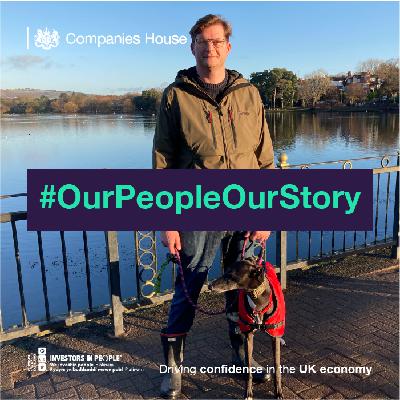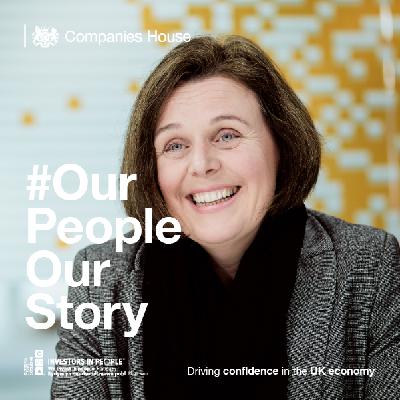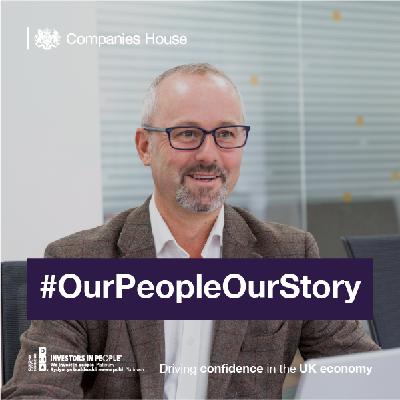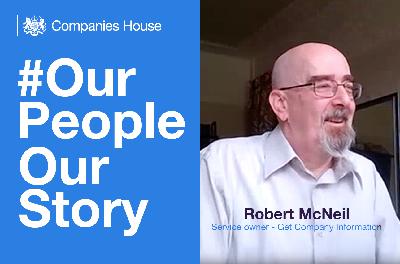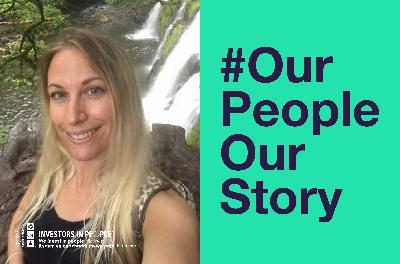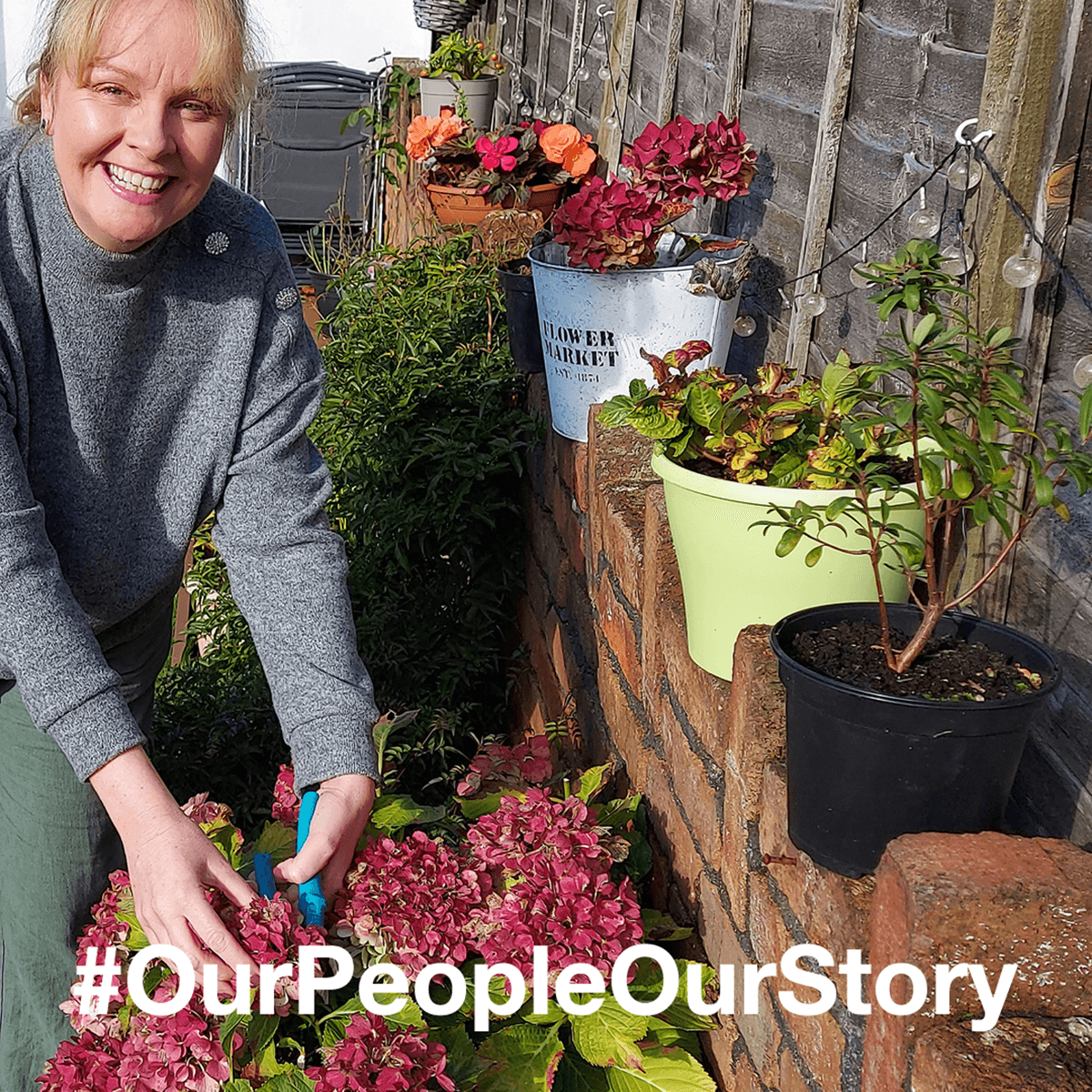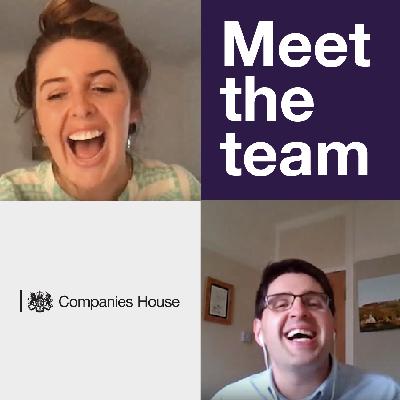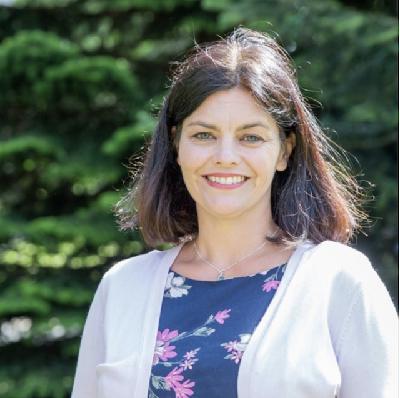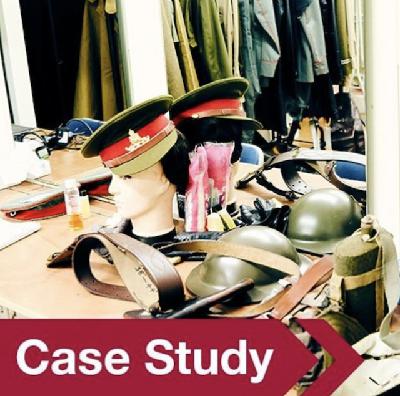Ross Maude: Director of Digital
Description
In this podcast Meg speaks with Ross Maude, Director of Digital at Companies House. They discuss how our registers and data inspire trust and confidence. This is the third podcast in a six part series, each one discussing our strategic goals.
Megan Hayward: Hello and welcome to another podcast episode from Companies House. We have recently launched our new five-year strategy and one of our strategic goals is all about how “our registers inspire trust and confidence” and the use of our data. Data is one of the backbones of Companies House. And today I'm here with Ross Maude, Director of Digital, at Companies House. And today Ross is going to give us a bit of an insight into his work and how that work runs through who we are and what we do. So, hi Ross. How are you?
Ross Maude: Good. Thanks, Megan. Yes, very well.
MH: Starting to feel a little bit festive?
RM: I am. Christmas tree is up. The lights are up. Yes, I'm starting to get there. Almost there, almost at the Christmas period. So, looking forward to a chance of a good break.
MH: Excellent. Not long to go now.
RM: How about you? Are you ready?
MH: Yeah. Yeah. I mean, it's a quiet one this year. So not too much to get ready luckily.
RM: Relying on delivery for most of the presents, but yes.
MH: Yes, definitely. So, I'm going to kick off with my first question. So, being the Director of Digital, what does that mean, first of all to you and to us as an organisation?
RM: So, the strategic question about data and having trusted and valued data that inspires trust and confidence. I think it's really important. Perhaps because I'm a slightly sort of digital person. I think data is super important, how we treat it, how we manage it, how we look after it. But that's a starting internal view. But I think what's more important actually is what the register is, why it exists, and it's always been sort of a, you know, if people are dealing with a legal entity, they can look up the individuals and the history of the entity and they can make investment choices based on you know, who forms the leadership of that organisation and what their history of their account filings look like for example. So, it allows people to understand, you know, what's inside the legal entity they're working with. What it's made up of and that's really really important. And actually, you know, right now this second, we had some figures last year from some of the credit reference agencies. There is something like 1.7 trillion pounds is invested in UK business every year and the credit reference agencies use our data as one of the foundational elements to make those decisions. And so, I suppose that data, if our data is being used to inform that level of investment then you know, it's so important that we have it right and we have it available and we have it in the right format that people can access as easily as possible to make those decisions.
MH: Yeah. So, you touched on the credit reference agencies. Obviously, our register and the data is trusted by a variety of users. Can you give me a bit more of an insight into some of the other groups that might use our register?
RM: So, I think it’s an interesting one. So, the data is used by a huge range of different stakeholders, if I can use that phrase. So, obviously other companies look at each other in the first instance. Individuals, who look, I mean interesting one of their kind of highest hit rates is when a football club has a change of directorship, you know. That drives huge traffic towards our register. People have a look at who it is, what's going on. But, you know, there's more than that. So obviously investors, you know, investing groups would look at the data to make investment decisions. I have kind of touched on that before. It's used by researchers from all different areas to understand what's happening in the economy. It might be used by people like Transparency International Group who would be looking at particular transfer data for activities. It's also used by law enforcement agencies and actually a really big users of our data are other government agencies. So, really broad spreads of individuals, organisations, and different stakeholders. And I probably missed off loads of other people who fall in different camps. It's just such a widely accessed data set. I think it's last 12 months; it was something like 9.7 billion searches across our register. The data register which is vast. So, really really powerful, of great value with those that we hold.
MH: Yeah. Definitely. It's funny other than you know, people just having a nose. That's you know, a lot of what our searches are. But there are you know, really important reasons that people use our data and need to go and look. So there are like business decisions. But is there anything else that brings to your mind that people could be using our data for.
RM: That's a really good question. So, of course, you know, there's understanding what's you know, what's happening with inside companies to make investment choices, but there's also
understanding what activities organisations do. So, you can do you can see things by industry, by geography. You can see how many individuals are responsible for different organisations. So, there's a whole range of activities that go on including as I mentioned things like Transparency International and or law enforcement and or government and obviously we can see lots of information about the activities of organisations. Appointments, removals, filings of account data and all this information can be, you know, can be pulled together and used to support understanding activity by these organisations. And that can be really useful for folks like law enforcement agencies, people with a remit like Transparency International journalists who are trying to get, you know, a more data rich picture of particular activities that, you know, that meet their needs.
MH: Yeah. It's almost impossible to know the actual length of what our data is used for. But that definitely gives a really good insight.
RM: Yeah, there’s something in there. I think it’s interesting if you think about that data on its own. As a big dataset that you can look at and search. I think, obviously, what credit reference agencies do is take that data and then they add other datasets, and they link them up. And I think, when you start doing that, then the possibilities become countless in terms of what sort of questions you might be asking or looking for corroboration of activity.
MH: Yeah, like, it's almost like we're part of a really big jigsaw for some people. A really important jigsaw. So, my next question is over the next five years, and I know that we're going to be making changes to the data on our registers. And can you tell me a little bit about what those changes will be out and why we're making them.
RM: Yes. In kind of broad brushstrokes, I think the main thing is the quality of our data. So, you know, how do we check the data that's coming in against other data sets. So, you know, simple answers could be things like an address. So, you know, there are lists of UK addresses, for example. So, can we make sure that all of the address data that we hold links to like a national data set which means that all our addresses that we hold are correct or a percentage aren't. How do we make sure it's more reliable. So again, a lot of this is about cross checking with other information sources. Making sure that we have the right checks, the right automation. All the things that we can do to make sure that the information we've got is timely. It's, you know, it's been checked. It has good quality to it overall. That's going to be quite a big change, I think. Obviously though, the higher quality data that we're taking in and we are then presenting out having done the things you need to do with it. That means that the answers people get to their questions come from more reliable data, and I think that's really important. So, that there is this constant level of quality reliability of the big data that we're offering to others to make decisions. I think that's going to be really really important. And as the quality gets better and better it means those activities if you want to stop quite frankly, you know, fraudulent activities or other economic crimes that can misuse legal entities. I think as our data gets clearer and clearer, then it will be much easier to spot those sorts of activities for those who you know whose job it is to do that.
MH: Yeah, definitely. That's really good and it really gives an insight to you know, when you've got such data out on such a public register, it does need streamlining in a way.
RM: It needs to be. You know, we need to be able to make sure it's of the highest quality as possible. That's one end of it. So, we need to be able to check and do some more confirmation and check it against other information sets to make sure that what we are holding is a well reference set of data. I’m being a bit boring and techy now. But that's really important. Because then you know, it's good quality. You can compare it to something else and that's really important and that then allows much better decisions to be made on the back of it. That's where the question is. How do we make it available? You know, I don't have concrete answers. But how do we make sure it's available at scale in ways that people can intuitively understand the information. That's going to be really important too. So, it's all there, you can get access to it now and you can download a really vast set of numbers and letters. But perhaps, you know, one t

